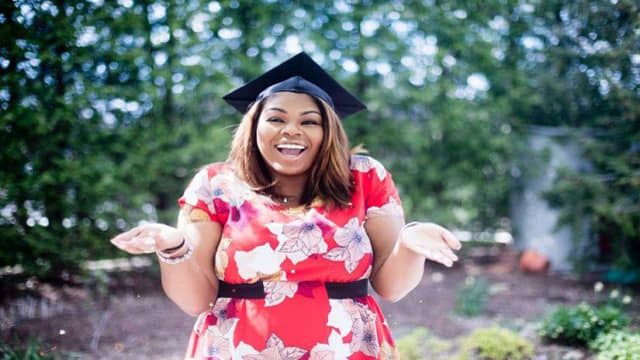Advertiser Disclosure
The Best Private Loans For Graduate School
Updated On September 14, 2022
Editorial Note: This content is based solely on the author's opinions and is not provided, approved, endorsed or reviewed by any financial institution or partner.

What are the best private loans for graduate school?
If you are starting or returning to graduate school this fall, then it’s that time of year to start thinking carefully about your student loan strategy.
Whether you are an aspiring dentist, doctor, pharmacist, veterinarian, lawyer or MBA, here is what you need to know to make an informed decision on the best private loans for graduate school.
According to Mentor, you can expect to graduate with the following student loan debt if you pursue one of these degrees:
Dental School: $260,000
Medical School: $180,000
Pharmacy School: $160,000Veterinary School: $140,000
Law School: $140,000
Given the expected debt load at graduation, it is critical that you understand your options now and have a student loan game plan in place before you start graduate school.
Top Picks For Private Student Loans
July 2024
View Details
Overview
Details
- Student loans available to graduate, bachelors and associates degrees
- Deferment and forbearance options may be available
- Grace period for undergraduates: 6 months
- Grace period for graduate students: 9 months
- Flexible student loan repayment options
Review:
View Details
Overview
Details
- Offer college, graduate school, law school, MBA and Parent student loans
- Flexible repayment options
- No late fees
- Autopay rate discount
- Free perks such as career planning and job search assistance
Review:
View Details
Overview
Details
- Low rates from community lenders like credit unions and community banks
- Get lower rates with a co-signer
- Ability to pause payments for up to 18 months if you become unemployed
- May consider your academic credentials to help you get a lower rate
- If you repay 10% of your loan before your loan enters full repayment period, 1.0% APR is dropped from your current interest rate
Review:
View Details
Overview
Details
- Offer student loans for undergraduates, career training, and graduate students.
- Provide private student loans to full-time, half-time and less the half-time students.
- Non-U.S. citizens are eligible for student loans with a qualified U.S. citizen co-signer.
- Multiple repayment options.
- Borrow from $1,000 up to 100% of the school-certified expenses.
View Details
Overview
Details
- Student loans for college, graduate, medical/dental, law, MBA and Parent Loans
- Flexible repayment options
- Multi-year approval: no need to apply annually
- Cosigner option
- Forbearance and deferment options
View Details
Overview
Details
- Student loan repayment while in school
- 1% cash back on student loan principal at graduation
- Co-signer release after 12 consecutive payments
- Financial hardship forbearance available
- No minimum income or credit score
- Apply with or without a co-signer
Review:
Disclosures: College Ave | SoFi | LendKey | Sallie Mae | Citizens | Ascent
What are the best private loans for graduate school?
When it comes to the best private loans for graduate school, you have two primary options: federal student loans and private student loans.
For federal student loans, there are two types: Unsubsidized Stafford Loans and Graduate PLUS Loans.
1. Stafford Loans
Amount You Can Borrow: For graduate school, you can borrow $20,500 per year of Stafford loans with an aggregate limit of $138,500, which includes any Stafford loans that you borrowed as an undergraduate.
These loans are fixed rate Direct unsubsidized loans. Each year, under federal law, Congress sets the interest rate on federal student loans with an effective date of July 1.
The current interest rate for Direct Unsubsidized Loans for graduate students from July 1, 2016 – June 30, 2017 is 5.31%.
Fees: When you borrow a Stafford Loan, the federal government charges an origination fee of 1.069% of the disbursed loan amount. The fee amount is deducted from the amount that you borrow.
Therefore, the student loan amount that you receive is lower than the amount that you borrowed. However, you are still responsible to repay the full amount of the student loan that you borrowed.
For example, if you borrow $20,500 in Stafford loans, you will pay an origination fee of $219.14 and receive a net amount of $20,280.86. You will still be financially responsible to repay the $20,500.
Repayment: Student loan repayment begins six months after you graduate or become enrolled less than half time.
2. Graduate PLUS Loans
Amount You Can Borrow: Graduate PLUS Loans are for both student and parent borrowers (Parent PLUS Loans). You can borrow up to the cost of attendance as determined by your school, less any financial aid received.
Unlike Stafford loans, there is no aggregate limit. To qualify for a Graduate PLUS Loan, you must not have an adverse credit history. You have to complete a Free Application For Federal Student Aid (FAFSA®) and can request a Direct PLUS Loan at StudentLoans.gov.
The current interest rate for Graduate PLUS Loans from July 1, 2016 – June 30, 2017 is 6.31%. Like the Stafford loan, the Graduate PLUS Loan is a fixed rate loan (but a 1% higher interest rate).
Fees: When you borrow a Graduate PLUS Loan, the federal government charges an origination fee of 4.076% of the disbursed loan amount, which is deducted from your loan principal before your student loan is disbursed and sent to your school.
Repayment: If you are a student borrower, repayment begins six months after you graduate or become enrolled less than half time. If you are a parent borrower, typically repayment begins once your loan is fully disbursed.
However, you may request a deferment while your child is enrolled at least half-time and for an additional six months after your child graduates, leaves school or drops below half-time enrollment.
3. Private Loans For Graduate School
A private student loan is a non-government student loan that may be issued by a bank, credit union or other financial services company.
Unlike Stafford and Graduate PLUS Loans, which are both fixed interest rate student loans, private student lenders typically offer both fixed and variable interest rate loans.
With private student loans, you typically have to start repayment while in school, but some lenders have programs to minimize the payments while you are in school. If you have a strong credit profile, you can find private student loans with both lower fixed and variable interest rates than federal government student loans.
Can I Refinance Private Loans For Graduate School?
Yes, you can refinance private loans for graduate school and receive a lower interest rate if you meet certain qualifications and are approved with a private student loan lender.
With federal student loans, every borrower receives the same fixed interest rate regardless of a borrower’s underlying credit quality. If you have bad credit, this can work to your advantage because the federal government does not underwrite student loans based on credit scores.
However, if you have a strong credit profile, you may be paying more for your student loans – at least initially – when you borrow as a graduate student.
If you have a high credit score and are a responsible financial borrower, you will have an opportunity to refinance your student loans for a lower interest rate either before or after you graduate or in residency (depending on your degree type).
The reason that you potentially can lower your interest rate when you refinance student loans is that unlike the federal government, private student loan lenders underwrite student loans based on the borrower’s underlying credit profile.
This means that those borrowers with solid credit, or who have a qualified co-signer, benefit most from student loan refinancing (although there are other factors besides your credit profile such as monthly income, cash flow, debt-to-income and other metrics).
Whether you pursue a Stafford Loan, Graduate PLUS Loan or private student loan (or a combination thereof), it’s never too early to get started on your student loan game plan.







